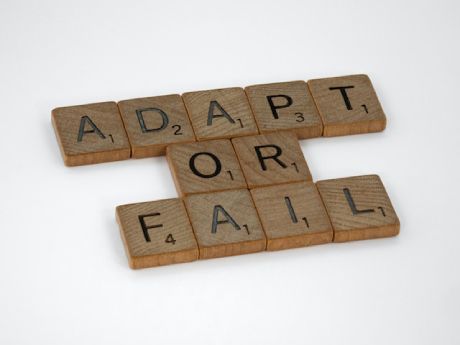Recently we’ve written about three popular cognitive biases that poker players should be aware of: gambler’s fallacy, confirmation bias and overconfidence bias. In this article, we’ll explore three other cognitive biases that commonly impact people, including poker players: sunk cost fallacy, anchoring bias, and availability heuristic.
By learning to identify and counteract these biases, you’ll gain a competitive edge at the poker table and make more informed, rational decisions in your gameplay.
Sunk cost fallacy – the perils of chasing losses in poker
The human brain hates losses more than it loves winnings, and that’s probably why this cognitive bias is so common. The sunk cost fallacy occurs when a person continues to invest time, effort, or money into a situation based on the amount already invested rather than evaluating the current and future value of the decision. In poker, this bias often manifests as players feeling compelled to continue in a hand because they’ve already committed chips to the pot, even when the odds are bad.
It’s a typical pattern shown by inexperienced players; quite often, they are willing to put the “rest” of their stack into the pot even when they rightfully feel that’s not the best play.
How to keep your mind and emotions in check and counteract the sunk cost fallacy? It is essential to treat each decision independently and focus on the current action’s potential outcome (and expected value). Rather than being influenced by past investments, evaluate the strength of your hand, your opponents’ likely holdings, and the pot odds independently before making a decision.
Remember that chips already committed to the pot are no longer yours; focus on making the best decision based on the current situation and what’s the most profitable play.

Anchoring bias – don’t get stuck on first impressions
Anchoring bias is the tendency to rely too heavily on the first piece of information encountered when making decisions. In poker, this can lead to players overvaluing a hand based on initial cards or an opponent’s early actions, causing them to make sub optimal decisions as the hand progresses.
For example, if you’ve been dealt a strong starting hand, you may become anchored to the idea that you have the best hand and fail to recognize signs that your opponents have improved their hands on later streets. This approach can result in significant losses when you fail to adapt to new information.
The anchoring bias is commonly visible when a recreational player gets dealt aces. Many people are so attached to having the best preflop hand possible that they often neglect what’s going on the later streets and lose unnecessarily big pots.
To counteract anchoring bias, remain flexible and open to new information as it becomes available. Continuously reassess the strength of your hand in relation to the board and your opponent’s actions. Avoid becoming overly attached to a specific hand or strategy, and be willing to adjust your approach as the situation evolves, especially when it evolves in an unwanted direction.

The availability heuristic – misjudging probabilities at the poker table
The availability heuristic is a mental shortcut that causes people to estimate the likelihood of an event based on the ease with which examples come to mind. In poker, this can lead to players overestimating the probability of certain outcomes, such as an opponent holding a specific hand, based on recent or memorable experiences.
For instance, if you recently lost a large pot when an opponent hit a flush on the river, you may be more likely to overestimate the chances of this happening again in future hands. This can result in making overly cautious or aggressive decisions based on an inaccurate assessment of probabilities.
To counteract the availability heuristic, focus on developing a solid understanding of poker probabilities and odds. Familiarize yourself with common poker odds, such as the likelihood of hitting a flush draw or the odds of your opponent holding a specific hand. A solid, well-rounded poker strategy is the best way to counter this cognitive bias.
Cognitive biases will always be there
But the good news is that they also affect other players at the table. By recognizing and counteracting their influence, you’ll be better equipped to make rational, informed decisions and gain an edge over your opposition.
While important, psychology is not the only area any good poker player should excel. Remember that a solid understanding of the game is essential to become a great player.
We can help you with that, as we did with hundreds of others. Join Smart Spin and get access to our coaching materials and the great poker community.
